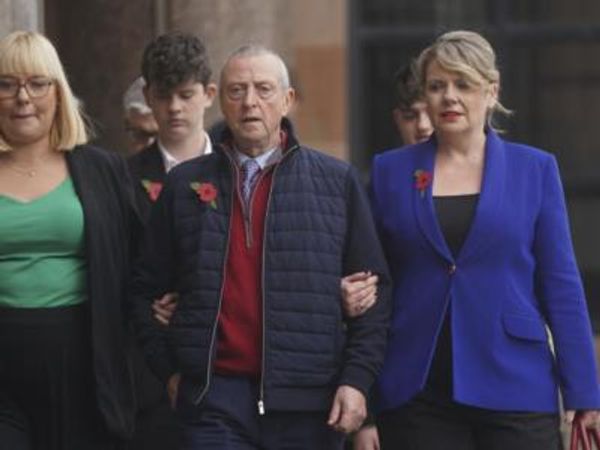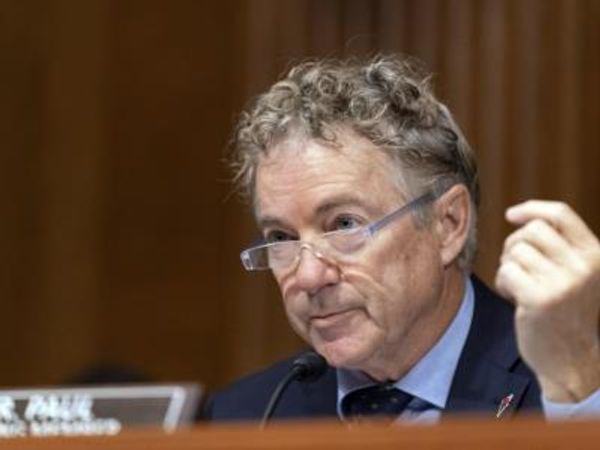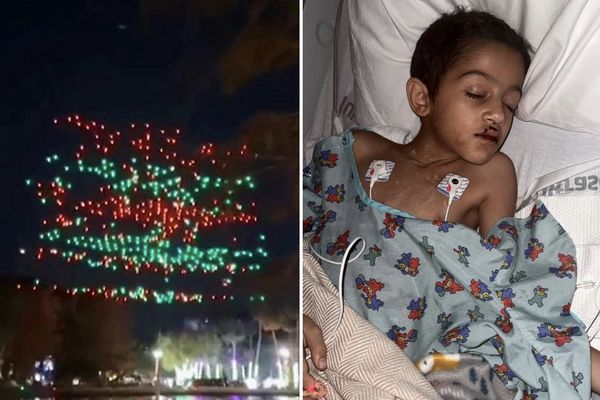
Belfast (AFP) - The British government said on Friday it would call elections in Northern Ireland within 12 weeks, the second time since May, after UK and local lawmakers failed to resolve a standoff over post-Brexit trade rules.
Northern Ireland Secretary Chris Heaton-Harris confirmed that talks with the UK province's fractious political parties had not yielded a breakthrough ahead of a Friday deadline to resume a power-sharing devolved government.
"As of earlier today, an executive can no longer form and I am duty-bound by law to call new elections to the Northern Ireland Assembly...as soon as practicably possible and within 12 weeks," he said in a statement.
Heaton-Harris added he had met local election officials "to discuss operational considerations to inform my decision about the election date", while telling reporters that he would say more next week.
The UK minister noted that political parties in Belfast were opposed to holding a second election in less than a year, but insisted that he had been left with no other option.
The province has been without a devolved government for nine months, after the pro-UK Democratic Unionist Party (DUP) collapsed power-sharing in February over its trenchant opposition to the so-called Northern Ireland Protocol governing post-Brexit trade rules.
It wants the pact, which effectively keeps Northern Ireland in the European Union's single market and customs union, overhauled or scrapped entirely.
DUP leader Jeffrey Donaldson has defended his party's stance, arguing the protocol "harms our economy, harms our people and prevents us getting access to medicines and other vital supplies".
'Perpetual standoff'
Three months after it began the boycott, pro-Irish party Sinn Fein won a historic first election, which is seen as further complicating the political situation.
Its leader Michelle O'Neill -- who was set to become first minister if the executive had been restarted -- has condemned the DUP's "perpetual standoff with the public", claiming it does not represent "the majority".
Both leaders have said they are reluctantly ready to fight another election and on Friday criticised Heaton-Harris -- only appointed to his role on September 6 -- for appearing to leave the situation uncertain, with no fixed date for the fresh elections.
O'Neill decried the "dysfunction" in London -- which has seen three prime ministers in two months.
"We have a situation tonight where people just don't know what is going to happen next," she added.
The province's parties had made a last-ditch attempt to restart the joint executive between pro-Ireland nationalists and pro-UK unionists on Thursday.
But after reconvening for the first time in months for a brief, argumentative session, they failed to elect a speaker, so no new government could be created.
'Deeply regrettable'
The DUP insists the protocol -- agreed by London and Brussels as part of Britain's 2019 Brexit deal -- must be addressed before it will share power again.
"The government should focus its time and energy on ensuring the protocol problem is dealt with and Northern Ireland's place in the UK internal market is restored," Donaldson said.
Many unionists argue it also threatens the delicate balance of peace between the pro-Irish nationalist community and those in favour of continued union with Britain.
The protocol was agreed to avoid the return of a hard land border with the Republic of Ireland, which remains an EU member.
Eliminating that hard border was a key strand of the 1998 Good Friday Agreement, which ended three decades of sectarian violence in Northern Ireland.
Britain's Conservative government has urged Brussels to agree to wholesale revisions of the protocol, which is being resisted in ongoing negotiations.London is also in the midst of passing contentious legislation to override it unilaterally.
That has sparked fears of a trade war and worsening relations with Europe -- when the economic landscape is already gloomy.
Ireland's foreign minister Simon Coveney called the imminent election "deeply regrettable" and blamed the DUP for blocking the resumption of power-sharing.
"I want to see an executive formed in Northern Ireland and, separately, I want to see early substantive progress in the EU-UK talks," he added.







